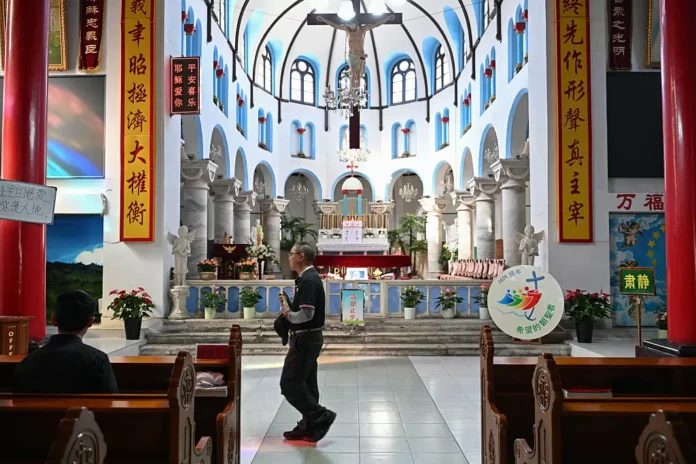The late Pope Francis was known for his efforts to improve the Catholic Church’s relationship with Beijing. During his papacy, he increased engagement with China in hopes of bridging the gap between the Church and the Chinese government. His efforts were met with both praise and criticism, but one thing is certain – his actions have set the stage for what could come next.
Pope Francis, who passed away earlier this year, was a strong advocate for dialogue and understanding between different cultures and religions. He believed that by engaging with China, the Catholic Church could have a positive impact on the country and its people. This was a bold move, considering the strained relationship between the Vatican and Beijing for decades.
One of the key ways in which Pope Francis tried to improve the Church’s relationship with Beijing was through increased engagement. He made several attempts to reach out to the Chinese government, including sending a letter to President Xi Jinping in 2018. In the letter, the Pope expressed his desire for a “fraternal dialogue” and urged China to open up to the world and allow religious freedom.
This was a significant step, as the Chinese government has long been wary of foreign influence and has strict regulations on religious activities. However, Pope Francis’ efforts did not go unnoticed. In 2018, the Vatican and China signed a historic agreement on the appointment of bishops, which aimed to bridge the divide between the state-sanctioned Catholic Church in China and the underground Church loyal to the Vatican.
The agreement was met with mixed reactions, with some praising it as a step towards unity and others criticizing it for compromising the Church’s principles. However, Pope Francis remained steadfast in his belief that engagement with China was necessary for the Church’s growth and influence in the country.
So, what could come next in the Catholic Church’s relationship with Beijing? One possibility is that the Vatican and China will continue to work towards implementing the 2018 agreement and further improving their ties. This could involve the appointment of more bishops and the regularization of the underground Church in China.
Another possibility is that the Church will use its influence to advocate for religious freedom and human rights in China. Pope Francis has always been a vocal advocate for the marginalized and oppressed, and he did not shy away from addressing these issues during his papacy. With the Church’s growing presence in China, it could have a significant impact on promoting these values in the country.
Moreover, the Catholic Church’s engagement with China could also lead to a better understanding and acceptance of Christianity in the country. While Christianity has been growing in China in recent years, it still faces restrictions and persecution. With the Church’s efforts to build a relationship with the Chinese government, there could be more opportunities for dialogue and cooperation, leading to a more tolerant and inclusive society.
However, it is important to note that the future of the Catholic Church’s relationship with Beijing is not without challenges. The Chinese government’s control over religious activities and its human rights record are still major concerns. The Church must navigate these issues carefully and continue to advocate for its principles while engaging with China.
In conclusion, the late Pope Francis’ efforts to improve the Catholic Church’s relationship with Beijing have set the stage for what could come next. His commitment to dialogue and engagement has opened up new possibilities for the Church in China. It is now up to the Church to continue building on these efforts and work towards a more harmonious relationship with Beijing, while also standing firm in its principles and values. As Pope Francis once said, “Dialogue is born from an attitude of respect for the other person, from a conviction that the other person has something good to say.” Let us hope that this attitude of respect and dialogue will continue to guide the Church’s relationship with Beijing in the future.

